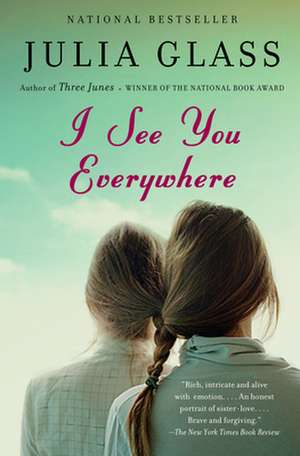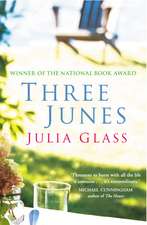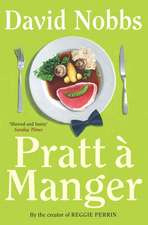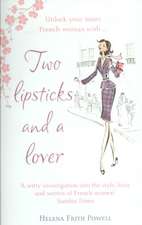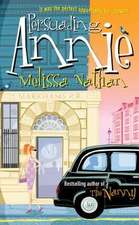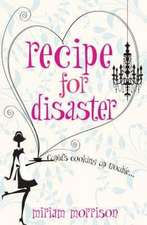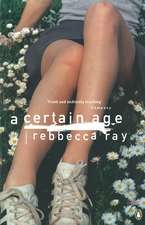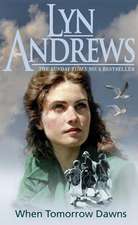I See You Everywhere
Autor Julia Glassen Limba Engleză Paperback – 30 iun 2009
A Christian Science Monitor Best Book of the Year
Julia Glass, the bestselling, National Book Award-winning author of Three Junes, returns with a tender, riveting book of two sisters and their complicated relationship.
Louisa Jardine is the older one, the conscientious student, precise and careful: the one who yearns for a good marriage, an artistic career, a family. Clem, the archetypal youngest, is the rebel: committed to her work saving animals, but not to the men who fall for her. In this vivid, heartrending story of what we can and cannot do for those we love, the sisters grow closer as they move further apart. All told with sensual detail and deft characterization, I See You Everywhere is a candid story of life and death, companionship and sorrow, and the nature of sisterhood itself.
| Toate formatele și edițiile | Preț | Express |
|---|---|---|
| Paperback (2) | 43.43 lei 21-33 zile | |
| Cornerstone – 6 aug 2009 | 43.43 lei 21-33 zile | |
| Anchor Books – 30 iun 2009 | 84.97 lei 3-5 săpt. |
Preț: 84.97 lei
Nou
Puncte Express: 127
Preț estimativ în valută:
16.26€ • 16.96$ • 13.51£
16.26€ • 16.96$ • 13.51£
Carte disponibilă
Livrare economică 28 februarie-14 martie
Preluare comenzi: 021 569.72.76
Specificații
ISBN-13: 9781400075775
ISBN-10: 1400075777
Pagini: 287
Dimensiuni: 134 x 202 x 24 mm
Greutate: 0.3 kg
Editura: Anchor Books
ISBN-10: 1400075777
Pagini: 287
Dimensiuni: 134 x 202 x 24 mm
Greutate: 0.3 kg
Editura: Anchor Books
Notă biografică
Julia Glass is the author of Three Junes, which won the National Book Award for Fiction, and The Whole World Over. She has received fellowships from the National Endowment for the Arts, the New York Foundation for the Arts, and the Radcliffe Institute for Advanced Study. Her short fiction has won several prizes, including the Tobias Wolff Award and the Pirate's Alley Faulkner Society Medal for the Best Novella. She lives with her family in Massachusetts.
From the Hardcover edition.
From the Hardcover edition.
Extras
Swim to the Middle
1980
I avoid reunions. I’m not a rebel, a recluse, or a sociopath, and I’m too young to qualify as a crank, even if it’s true that I just spent the evening of my twenty-fifth birthday not carousing with friends or drinking champagne at a candlelit table for two but resolutely alone and working, glazing a large ovoid porcelain bowl while listening to Ella Fitzgerald sing songs by the Gershwin brothers. (A crank could never love Gershwin.) My one real boyfriend in college, just before we broke up, told me I’m nostalgic to a fault. He professed contempt for what he called “the delusional sound track to our parents’ deluded lives.” He informed me that you can’t be nostalgic for things that had their heyday before you were so much as born. Just about any member of my family would have laughed him out the door and down the garden path.
Family reunions are the worst—all that competition disguised as fellowship—and they’re also the hardest to avoid. But when my father’s Great-Aunt Lucy died last summer, there was an inheritance at stake, a collection of antique jewelry. Not the glossy priceless stuff—no diamonds, tiaras, or niagaras of pearls. Not things you’d sell but things so deliciously old-fashioned and stylish that to wear them makes you feel like a character from a Jane Austen novel or a Chekhov play. The one piece I remembered most vividly was a cameo, two inches square, ivory on steel-blue Pacific coral, a woman’s face inclined toward her hand, in her slender fingers an iris. Aunt Lucy had worn that cameo day and night, winter and summer, on lace and wool. Maybe she’d left us a charm bracelet, maybe earrings of garnet or Mexican silver, but mostly I wondered about that cameo. And wanted it. I’d wanted it since I was a little girl. One of my earliest memories is of sitting on Lucy’s lap, squirming to find a comfortable spot on her bony thighs yet happy to feel her kind honeyed voice in my hair as she talked with the other grown-ups gathered on her porch. She did not object to my poking and fingering the cameo, probing its fragile details: the woman’s eyelids and earlobes, the cuticles of her nails, the harmoniously wandering tendrils of her hair. She let me borrow it once, for a family dinner at a country inn.
Because Lucy never had children, not even a husband, my father long ago became the one who kept an eye on her in the last decades of her very long life. Geographically, he was the closest family member by far; out of a large, tenaciously Confederate clan, they were the only two living anywhere you can count on snow. Once Dad decided to stay north, after earning two degrees at Harvard, the family lumped him together with Lucy: “How are the defectas faring up yonda?” a cousin might ask Dad at a wedding in Memphis or Charleston. Happily, their proximity blossomed into genuine affection.
So Dad was the executor of Lucy’s will, which emerged from her bureau drawer along with a letter to my father that she’d written a year before she died. It began, To my splendid grandnephew Beauchance: Before I take my irreversible leave (which I suppose I will now have taken, strange to think), I am seizing this lucid moment to write down a few matters pertaining to the house and my ragbag possessions therein. I have little doubt that I shall have left the house in a rather sorry state, for which I apologize. Be charitable, if you can, to any bats or raccoons which may have colonized the attic or basement (though none to my knowledge have done so), and please take Sonny’s word on any tasks for which he claims I still owe him payment; our mutual accounting has grown slack if not capricious. . . .
Over the phone, Dad read me the letter in its crisp yet meandering entirety, stopping now and then to chuckle. I heard no tears in his voice until the end, where she wrote, Whatever modest adornments pass for jewelry, I leave to your daughters, Louisa and Clement. I did not become as intimately acquainted with them as I would have liked, but I did know the satisfaction, one summer to the next, of seeing how they grew; as I wish I had seen you evolve in your youth. I wish I had known much sooner, Beau, that you would become the facsimile of a perfect son, a gift whose pleasures I wish I had been blessed to know firsthand.
His voice cracked on the word gift, as if he didn’t deserve such gratitude, my father who will do just about anything for anyone, driving my mother crazy with all the favors he does for everyone else (including, as she likes to say, any random citizen of Outer Slobovia and its most godforsaken suburbs).
I decided to fly across the entire country because I couldn’t bear the thought that if I didn’t show up in person, my sister might inherit everything—including that cameo—by default. On the plane, I tried to decide which of two equally vulgar motives, materialism or spite, had compelled me to buy a ticket I couldn’t afford to a place where I’d see no one I wanted to see. My life was not, as people like to say, in a good place—though, ironically, the place where I lived at the time happened to be Santa Barbara. So I made excuses and timed my visit to avoid the masses of cousins, aunts, and uncles who would descend on Lucy’s house to grope the heirlooms by day and drink too much bourbon by night. I may share their Huguenot blood, but not their bad taste in booze and their glutinous drawl. I will never forget how, when our grandmother died two years ago, the family marauded her New Orleans house with no more respect than the Union soldiers who stripped us all bare a century back. You’d think, with all our costly educations, the reconstructed Jardines would avoid civil wars. Well, ha. There was an ugly brawl, which featured weeping and a smashed lamp, over the Steinway grand. Someone with Solomonic intentions actually went so far as to crank up a chainsaw. I could not deal with that type of gathering all over again. Whether I could deal with Clem remained to be seen.
My sister had been living with Aunt Lucy for what proved to be her final summer. After Lucy’s death, Clem stayed on while the relatives passed through, finishing up her summer jobs before heading back to college for her junior year. During the days, Clem worked in a bike shop and volunteered at a sanctuary for recovering raptors: birds, she’d explained when I called, that had been shot, struck by small planes, tortured by teenage boys. In the evenings, she kept an eye on Lucy—until her sudden death at the beginning of August. Not that our aunt was infirm, incontinent, or witless, but for the last several months of her life she was afflicted with an obstinate restlessness that sent her out after dark on urgent eccentric missions. Winooski, Vermont, is a snug, friendly place, so she wasn’t likely to be mugged or abducted. Nevertheless, reasoned Dad, who could say she wouldn’t do something drastic like sell her last shares of Monsanto and Kodak, head for the airport, and unintentionally vanish?
I’d hardly spoken to Clem since moving out west two years before. After college, in pursuit of a man I’d prefer to jettison from memory, I hauled my pottery wheel, my heart, and my disastrously poor judgment from Providence to California. It was completely unlike me to do anything so rash; maybe, subconsciously, I was trying to get back at Clem by pretending to be Clem, to annoy her by stealing her role as devil-may-care adventuress. Whatever the reason for my tempestuous act, it backfired. Three weeks after I signed a lease and bought a secondhand kiln, the boyfriend shed me like a stifling, scratchy-collared coat. To keep up with the rent I’d fooled myself into thinking he would share, I gave up my car. After that, I sold a pitcher here, a platter there, but to stave off eviction I wrote articles for a magazine that told workaholic doctors what to do with their leisure time. In college, I’d been just as good with words as I was with clay, and one of my Brit-lit classmates had started this odd publication. People had laughed, but subscriptions to Doc’s Holiday sold like deodorant soap.
Thus did I hold starvation at bay, but I also felt like the work kept me stuck in a place where I ought to love living but didn’t. Everything out there unnerved me: the punk shadows of palm trees slashing the lawns, the sun setting—not rising—over the ocean, the solitude of the sidewalks as I rushed everywhere on foot, carless and stared at. My inner compass refused to budge. North! it kept urging me. East! I’d just come to the conclusion that I didn’t belong there and never would, and I was feeling uncomfortable in my work, both kinds, but I had no intention of letting Clem in on my angst. My plan was never to trust her again, never to fall for her charms the way everyone else, especially men, seemed to do so fervently. And to snare that cameo. Maybe a string of pearls. Oh, Glenn Miller. I love him, too. What’s life without a little delusion?
•
If you’re to hear Louisa’s version of what went on last summer, you will also be hearing mine. Louisa’s worst side is the one I call the Judge. À la Salem witchcraft trials. There’s this look she gets on her face that tells the world and everyone in it how completely unworthy it and they are to contain or witness her presence. Beware! says that look. The Spanish Inquisition was Entenmann’s Danish!
Her new life in Santa Ladeedabra did not seem to have mellowed her out one iota, because when I pulled up at the airport, that’s the look she was wearing, firm as a church hat, beaming her world-weary scorn clear across the state of Vermont. I was late, okay, which didn’t help. It didn’t help either, I know, that it was me picking her up.
I wonder sometimes what kind of sisters we’ll be when we’re ancient (if we ever are). Olivia de Havilland and Joan Fontaine: before that visit, you’d have bet the hacienda we’d end up like them. Cold? Suspicious? Resentful? Ever notice how sisters, when they aren’t best friends, make particularly vicious enemies? Like, they could be enemies from the time they lay their beady little eyes on each other, maybe because their mother makes them rivals or maybe because there’s not enough love to go around and—not out of greed but from the gut, like two hawks zeroing in on a wren—they have no choice but to race for it. (Laws of nature, pure and simple. Be vigilant and survive. Altruism? A myth. Share? Oh please. Whatever it is that feeds the hunger, dive-bomb first, philosophize later.) Or maybe they grow apart in a more conscious way, maybe because their marriages clash: the guys they choose see each other as losers or sellouts; the women are helplessly loyal. But that’s not our story. No husbands yet, not even a hint of husband.
I’ve always been the favorite—our mother’s, at least. Partly, it’s the animal thing: Mom grew up on a storybook farm where animals ruled life more strictly than clocks. And I happen to be the one who set my sights that way. Saving animals is all I’ve ever wanted to do. In fourth grade, I asked Mom to give me all her shoe boxes. A hospital: that was the plan. I cut windows in the ends of the boxes and stacked them in the bottom of my closet like high-rise condos. My first baby bird got the penthouse. Next day, he was dead. They almost always die, I’d learn. But that didn’t stop me. “You’re my daughter, all right,” said Mom when she saw what I’d built (though her tone made me wonder if the likeness was such a good thing).
Louisa thinks this makes my life easy—being the favorite. She doesn’t realize that once you’re the disappointment, or once you’ve chosen a path seen as odd or unchoosable, your struggle is over, right? On the other side of the fence—mine—every expectation you fulfill (or look like you might, on purpose or not) puts you one step higher and closer to that Grand Canyon rim from which you could one day rule the world—or plummet in very grand style.
•
In the car, I let Clem do the talking. She was late to pick me up, and I was glad: it gave me a reason to sulk until I could get my bearings. I was glad to be back in New England, but I was cross-eyed with fatigue. I cannot sleep on planes. So Clem filled me in on the reading of the will and what she called the Great Divide: relatives clutching lists, drawing lots, swarming the house like fire ants. But this time there were no dogfights; everyone, said Clem, remembered the piano brawl.
I hadn’t seen the place in five years, and when we arrived, I just stood on the walk and stared. It’s a Victorian, more aspiring than grand, and it had always looked a little anemic, but now it was a wreck. The sallow paint, formerly white, hung off the clapboards in broad curling tongues, and the blue porch ceiling bore the crusty look of a cave complete with stalactites. The flagstones were fringed with moss. The front steps sagged. That the lawn had just been mowed made the house look even more derelict. “How could Dad let her live this way?” I asked.
From the Hardcover edition.
1980
I avoid reunions. I’m not a rebel, a recluse, or a sociopath, and I’m too young to qualify as a crank, even if it’s true that I just spent the evening of my twenty-fifth birthday not carousing with friends or drinking champagne at a candlelit table for two but resolutely alone and working, glazing a large ovoid porcelain bowl while listening to Ella Fitzgerald sing songs by the Gershwin brothers. (A crank could never love Gershwin.) My one real boyfriend in college, just before we broke up, told me I’m nostalgic to a fault. He professed contempt for what he called “the delusional sound track to our parents’ deluded lives.” He informed me that you can’t be nostalgic for things that had their heyday before you were so much as born. Just about any member of my family would have laughed him out the door and down the garden path.
Family reunions are the worst—all that competition disguised as fellowship—and they’re also the hardest to avoid. But when my father’s Great-Aunt Lucy died last summer, there was an inheritance at stake, a collection of antique jewelry. Not the glossy priceless stuff—no diamonds, tiaras, or niagaras of pearls. Not things you’d sell but things so deliciously old-fashioned and stylish that to wear them makes you feel like a character from a Jane Austen novel or a Chekhov play. The one piece I remembered most vividly was a cameo, two inches square, ivory on steel-blue Pacific coral, a woman’s face inclined toward her hand, in her slender fingers an iris. Aunt Lucy had worn that cameo day and night, winter and summer, on lace and wool. Maybe she’d left us a charm bracelet, maybe earrings of garnet or Mexican silver, but mostly I wondered about that cameo. And wanted it. I’d wanted it since I was a little girl. One of my earliest memories is of sitting on Lucy’s lap, squirming to find a comfortable spot on her bony thighs yet happy to feel her kind honeyed voice in my hair as she talked with the other grown-ups gathered on her porch. She did not object to my poking and fingering the cameo, probing its fragile details: the woman’s eyelids and earlobes, the cuticles of her nails, the harmoniously wandering tendrils of her hair. She let me borrow it once, for a family dinner at a country inn.
Because Lucy never had children, not even a husband, my father long ago became the one who kept an eye on her in the last decades of her very long life. Geographically, he was the closest family member by far; out of a large, tenaciously Confederate clan, they were the only two living anywhere you can count on snow. Once Dad decided to stay north, after earning two degrees at Harvard, the family lumped him together with Lucy: “How are the defectas faring up yonda?” a cousin might ask Dad at a wedding in Memphis or Charleston. Happily, their proximity blossomed into genuine affection.
So Dad was the executor of Lucy’s will, which emerged from her bureau drawer along with a letter to my father that she’d written a year before she died. It began, To my splendid grandnephew Beauchance: Before I take my irreversible leave (which I suppose I will now have taken, strange to think), I am seizing this lucid moment to write down a few matters pertaining to the house and my ragbag possessions therein. I have little doubt that I shall have left the house in a rather sorry state, for which I apologize. Be charitable, if you can, to any bats or raccoons which may have colonized the attic or basement (though none to my knowledge have done so), and please take Sonny’s word on any tasks for which he claims I still owe him payment; our mutual accounting has grown slack if not capricious. . . .
Over the phone, Dad read me the letter in its crisp yet meandering entirety, stopping now and then to chuckle. I heard no tears in his voice until the end, where she wrote, Whatever modest adornments pass for jewelry, I leave to your daughters, Louisa and Clement. I did not become as intimately acquainted with them as I would have liked, but I did know the satisfaction, one summer to the next, of seeing how they grew; as I wish I had seen you evolve in your youth. I wish I had known much sooner, Beau, that you would become the facsimile of a perfect son, a gift whose pleasures I wish I had been blessed to know firsthand.
His voice cracked on the word gift, as if he didn’t deserve such gratitude, my father who will do just about anything for anyone, driving my mother crazy with all the favors he does for everyone else (including, as she likes to say, any random citizen of Outer Slobovia and its most godforsaken suburbs).
I decided to fly across the entire country because I couldn’t bear the thought that if I didn’t show up in person, my sister might inherit everything—including that cameo—by default. On the plane, I tried to decide which of two equally vulgar motives, materialism or spite, had compelled me to buy a ticket I couldn’t afford to a place where I’d see no one I wanted to see. My life was not, as people like to say, in a good place—though, ironically, the place where I lived at the time happened to be Santa Barbara. So I made excuses and timed my visit to avoid the masses of cousins, aunts, and uncles who would descend on Lucy’s house to grope the heirlooms by day and drink too much bourbon by night. I may share their Huguenot blood, but not their bad taste in booze and their glutinous drawl. I will never forget how, when our grandmother died two years ago, the family marauded her New Orleans house with no more respect than the Union soldiers who stripped us all bare a century back. You’d think, with all our costly educations, the reconstructed Jardines would avoid civil wars. Well, ha. There was an ugly brawl, which featured weeping and a smashed lamp, over the Steinway grand. Someone with Solomonic intentions actually went so far as to crank up a chainsaw. I could not deal with that type of gathering all over again. Whether I could deal with Clem remained to be seen.
My sister had been living with Aunt Lucy for what proved to be her final summer. After Lucy’s death, Clem stayed on while the relatives passed through, finishing up her summer jobs before heading back to college for her junior year. During the days, Clem worked in a bike shop and volunteered at a sanctuary for recovering raptors: birds, she’d explained when I called, that had been shot, struck by small planes, tortured by teenage boys. In the evenings, she kept an eye on Lucy—until her sudden death at the beginning of August. Not that our aunt was infirm, incontinent, or witless, but for the last several months of her life she was afflicted with an obstinate restlessness that sent her out after dark on urgent eccentric missions. Winooski, Vermont, is a snug, friendly place, so she wasn’t likely to be mugged or abducted. Nevertheless, reasoned Dad, who could say she wouldn’t do something drastic like sell her last shares of Monsanto and Kodak, head for the airport, and unintentionally vanish?
I’d hardly spoken to Clem since moving out west two years before. After college, in pursuit of a man I’d prefer to jettison from memory, I hauled my pottery wheel, my heart, and my disastrously poor judgment from Providence to California. It was completely unlike me to do anything so rash; maybe, subconsciously, I was trying to get back at Clem by pretending to be Clem, to annoy her by stealing her role as devil-may-care adventuress. Whatever the reason for my tempestuous act, it backfired. Three weeks after I signed a lease and bought a secondhand kiln, the boyfriend shed me like a stifling, scratchy-collared coat. To keep up with the rent I’d fooled myself into thinking he would share, I gave up my car. After that, I sold a pitcher here, a platter there, but to stave off eviction I wrote articles for a magazine that told workaholic doctors what to do with their leisure time. In college, I’d been just as good with words as I was with clay, and one of my Brit-lit classmates had started this odd publication. People had laughed, but subscriptions to Doc’s Holiday sold like deodorant soap.
Thus did I hold starvation at bay, but I also felt like the work kept me stuck in a place where I ought to love living but didn’t. Everything out there unnerved me: the punk shadows of palm trees slashing the lawns, the sun setting—not rising—over the ocean, the solitude of the sidewalks as I rushed everywhere on foot, carless and stared at. My inner compass refused to budge. North! it kept urging me. East! I’d just come to the conclusion that I didn’t belong there and never would, and I was feeling uncomfortable in my work, both kinds, but I had no intention of letting Clem in on my angst. My plan was never to trust her again, never to fall for her charms the way everyone else, especially men, seemed to do so fervently. And to snare that cameo. Maybe a string of pearls. Oh, Glenn Miller. I love him, too. What’s life without a little delusion?
•
If you’re to hear Louisa’s version of what went on last summer, you will also be hearing mine. Louisa’s worst side is the one I call the Judge. À la Salem witchcraft trials. There’s this look she gets on her face that tells the world and everyone in it how completely unworthy it and they are to contain or witness her presence. Beware! says that look. The Spanish Inquisition was Entenmann’s Danish!
Her new life in Santa Ladeedabra did not seem to have mellowed her out one iota, because when I pulled up at the airport, that’s the look she was wearing, firm as a church hat, beaming her world-weary scorn clear across the state of Vermont. I was late, okay, which didn’t help. It didn’t help either, I know, that it was me picking her up.
I wonder sometimes what kind of sisters we’ll be when we’re ancient (if we ever are). Olivia de Havilland and Joan Fontaine: before that visit, you’d have bet the hacienda we’d end up like them. Cold? Suspicious? Resentful? Ever notice how sisters, when they aren’t best friends, make particularly vicious enemies? Like, they could be enemies from the time they lay their beady little eyes on each other, maybe because their mother makes them rivals or maybe because there’s not enough love to go around and—not out of greed but from the gut, like two hawks zeroing in on a wren—they have no choice but to race for it. (Laws of nature, pure and simple. Be vigilant and survive. Altruism? A myth. Share? Oh please. Whatever it is that feeds the hunger, dive-bomb first, philosophize later.) Or maybe they grow apart in a more conscious way, maybe because their marriages clash: the guys they choose see each other as losers or sellouts; the women are helplessly loyal. But that’s not our story. No husbands yet, not even a hint of husband.
I’ve always been the favorite—our mother’s, at least. Partly, it’s the animal thing: Mom grew up on a storybook farm where animals ruled life more strictly than clocks. And I happen to be the one who set my sights that way. Saving animals is all I’ve ever wanted to do. In fourth grade, I asked Mom to give me all her shoe boxes. A hospital: that was the plan. I cut windows in the ends of the boxes and stacked them in the bottom of my closet like high-rise condos. My first baby bird got the penthouse. Next day, he was dead. They almost always die, I’d learn. But that didn’t stop me. “You’re my daughter, all right,” said Mom when she saw what I’d built (though her tone made me wonder if the likeness was such a good thing).
Louisa thinks this makes my life easy—being the favorite. She doesn’t realize that once you’re the disappointment, or once you’ve chosen a path seen as odd or unchoosable, your struggle is over, right? On the other side of the fence—mine—every expectation you fulfill (or look like you might, on purpose or not) puts you one step higher and closer to that Grand Canyon rim from which you could one day rule the world—or plummet in very grand style.
•
In the car, I let Clem do the talking. She was late to pick me up, and I was glad: it gave me a reason to sulk until I could get my bearings. I was glad to be back in New England, but I was cross-eyed with fatigue. I cannot sleep on planes. So Clem filled me in on the reading of the will and what she called the Great Divide: relatives clutching lists, drawing lots, swarming the house like fire ants. But this time there were no dogfights; everyone, said Clem, remembered the piano brawl.
I hadn’t seen the place in five years, and when we arrived, I just stood on the walk and stared. It’s a Victorian, more aspiring than grand, and it had always looked a little anemic, but now it was a wreck. The sallow paint, formerly white, hung off the clapboards in broad curling tongues, and the blue porch ceiling bore the crusty look of a cave complete with stalactites. The flagstones were fringed with moss. The front steps sagged. That the lawn had just been mowed made the house look even more derelict. “How could Dad let her live this way?” I asked.
From the Hardcover edition.
Recenzii
“Rich, intricate and alive with emotion.... An honest portrait of sister-love and sister-hate-interlocking, brave and forgiving-made whole through art.” —The New York Times Book Review “Glass writes the sort of novels that you wish would go on forever.... I See You Everywhere is a lovely and heartbreaking book, and it ends far too soon.” —The Miami Herald “Nowhere are the ebbs and flows, the complex and often ugly nuances, the bonds and the breaks between sisters more achingly or more piercingly explored.” —USA Today “So heartbreakingly luminous that you'd swear Glass had access to your own most secret thoughts.” —Redbook “Extraordinarily good.... Unusually rich and complex.” —The Boston Globe “One doesn't read so much as sink into a Julia Glass novel.... A haunting dissection of human fragility.” —People “Glass is Edith Wharton for the twenty-first century.... Wharton wrote more than forty-eight books in her lifetime. American literature could use a few more from Glass.” —Pittsburgh Post-Gazette “Sheer pleasure for readers who love stories about complicated family relationships.” —San Francisco Chronicle
Descriere
From the author of the bestselling "Three Junes" comes an intimate tale of two sisters, together and apart, told in their alternating voices over 25 years. "I See You Everywhere" offers a piercingly candid story of companionship and sorrow, life and death.
